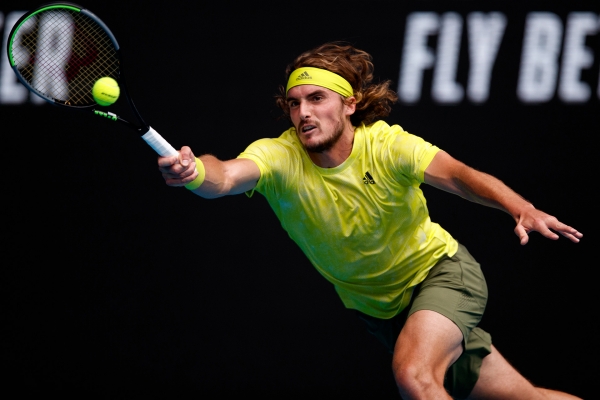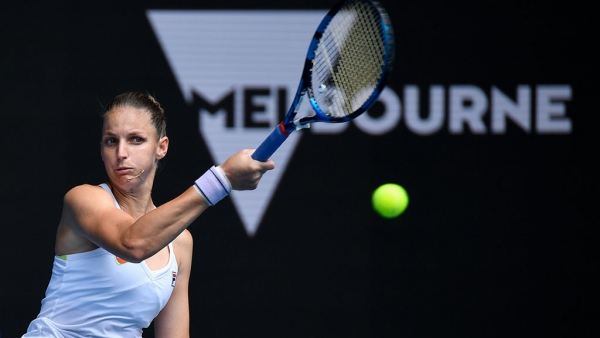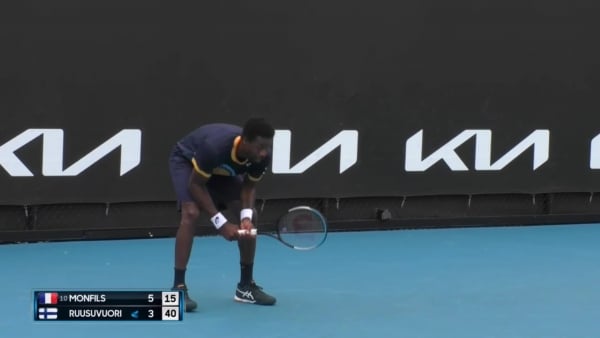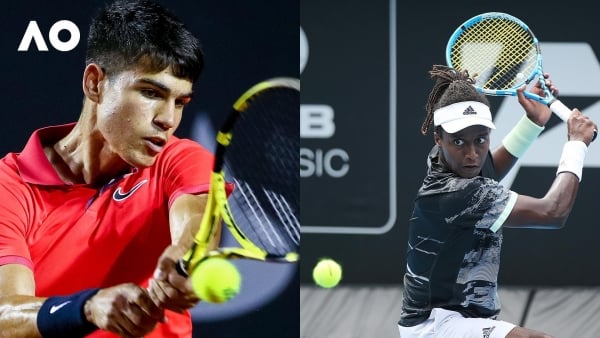The build-up to this year’s Australian Open was unlike any other the players have experienced in the past.
Changes had to be made to the tour calendar, travel arrangements, on-site protocols and practice plans, to ensure the health and safety of the state of Victoria and everyone involved.
For the first two weeks of their stay in Melbourne, players paired up in “cohorts” of two for their practice sessions, and had to stick to the same hitting partner for the entire 14 days.
Two more players were allowed to join the cohort for the following two weeks.

It’s just like when a science teacher asks you to choose your lab partner for the semester – you obviously have to choose very wisely. You’re not just picking someone you get along with and would enjoy their company for four weeks; you’re also banking on someone to help you get a good grade, or in this case, get yourself ready to hit your peak performance at a Grand Slam.
What you don’t necessarily expect is that your practice partner would become your on-court rival so quickly when the tournament starts. But that was the case for Gael Monfils and Emil Ruusuvuori, who squared off in the AO first round after spending two weeks as each other’s trusted hitting partner at Melbourne Park. Ruusuvuori came out on top in a tight five-setter.
“We were laughing with my coach because, I mean… you spend two weeks with one guy and there's 127 other players, so yeah, to play him it was kind of ridiculous, but that's what it is and, yeah, nothing we can do about it,” said Ruusuvuori earlier this week.
More practice partners are braced for tough battles on Saturday as Karolina Pliskova takes on her fellow Czech Karolina Muchova, and Stefanos Tsitsipas faces Mikael Ymer in the third round.
Pliskova says her two weeks on court with Muchova were “quite fun” and says their friendly relationship made it easier to ask her to work on certain things during practice, while still incorporating what Muchova needed from their hits together.
The world No.6 defeated Muchova in the first round of Australian Open 2019, but lost their most recent meeting 13-11 in the final set at Wimbledon six months later.
Pliskova doesn’t believe the two weeks they spent practicing together will have much of an effect on their match-up on Saturday.

“In the end I think it doesn't matter because we have to play each other anyway. I just have to find a way,” said the former world No.1.
“Of course, we know each other so much. Even if we would not practice those two weeks in quarantine, we practice a lot in Czech. We're actually quite good friends. I think it's going to be at least like good atmosphere, there is not really the tension that we hate each other. I think it can be a good match.”
Ruusuvuori had never hit with Monfils prior to their arrival in Melbourne, so spending time with him was very beneficial for the 21-year-old Finn. He said “it’s never boring” hitting with the free-spirited Monfils and was grateful for the whole experience.
“For sure I have much more experience [from hitting with Gael]. For two weeks, it's quite a long time. Of course practice matches are always different, but you're better prepared, I guess,” he explained.
“You can make a better plan. It's just, I played a lot with him. But then like I said, the match is always different and people might play even very different.”
For Ymer, two weeks with Tsitsipas – a world No.6 and two-time major semifinalist – was the best possible preparation for a Grand Slam.
Born a month apart, Tsitsipas joked that it’s very hard to find another player born in 1998 on tour, which made him particularly excited to train with the Swede.
Tsitsipas describes the 95th-ranked Ymer as a “prodigy”, and says they’ve known each since they were kids.
“He has a very unique, very different game style than most players. I would consider him as a counterpuncher. He likes to play with your speed. Very good baseliner. Has a really solid baseline game. Yeah, we played a lot together. I think it's good that we tested our tennis many times against one another during the quarantine,” said the Greek fifth seed.
“I think it helps that we played in quarantine. It's kind of like having a clue of how he plays and what he does. I'm pretty sure it's the same for him. This is going to be a difficult test, difficult challenge. He's in really good shape, plays good tennis. He's a big fighter. I'm going to have to fight harder than him, and it's great to be seeing him make the third round of a slam.”
Ymer isn’t giving too much credence to the time shared on court with Tsitsipas. He’s aware of his opponent’s strength and experience, and knows he’s in for a tough affair.
“I wouldn't say it has that much of an impact, because he does what he does and he does it very well, so you kind of know what's coming and it's not like, ‘Oh, I practice with him two weeks, I got some, I got a brand new tactic’,” he said.
“It really doesn't work like this, I don't think, against these kind of players.”

